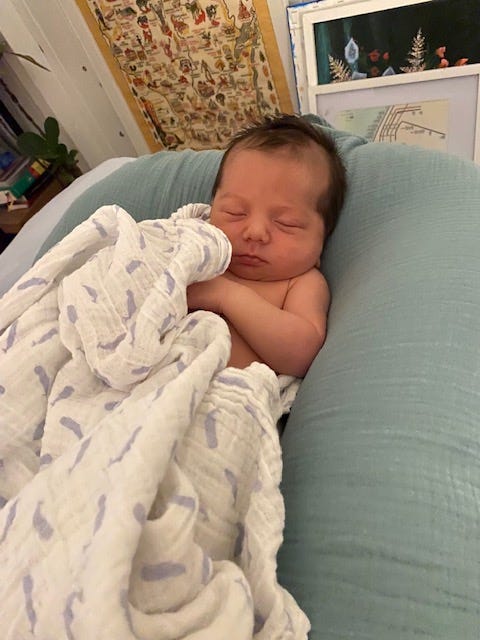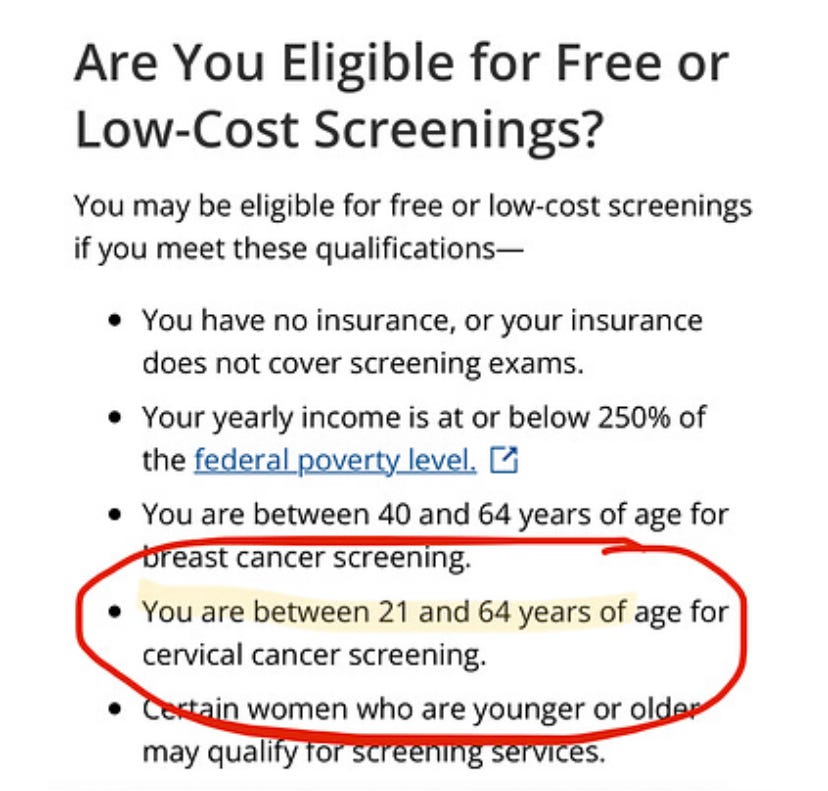Hello Readers,
I have a new little friend since we last congregated. My five-day-old grandson is lying beside me as I write, like an inspirational buddha. I can hear his rapid, steady, shallow breaths. In his few days on earth, a tiny seismic shift in the energy of the universe has occurred. Surviving on mothers milk alone he ushers in connection, simplicity, primal need and the dominion of skin-on-skin contact.
Being a grandparent marks the culmination of work done as a parent and a continuation of the family from there, largely without you. It also involves restraint, allowing the new young family to forge their own way.
For those of you who have been following L+M, you know what I endured trying to get to Australia for the birth of my first grandchild. Two and a half years later; no testing, no quarantine, no restrictions. I am eternally grateful.
My mom used to say she can’t make plans or accomplish tasks until “the baby is on the pillow.” He is on the pillow! Time to write.
As I welcome my newest family member into the world, I am reminded of the importance of taking care of not just the little ones, but also the women who bring them into the world.
Most women (and men) are familiar with the term ‘Pap smear,’ but may not fully understand what it is and why it is so important.
A Papanicolaou (Pap) smear is a procedure in which a small brush is used to gently remove cells from the surface of the cervix. The cells are then examined under a microscope to detect cervical cancer. A test for human papilloma virus (HPV) is done at the same time, as HPV is strongly associated with cervical cancer. Pap tests are started at age 21 and done every 3 years. Pap tests have saved billions of lives.
The last time I went to my gynecologist, she announced “you have just had your last Pap smear.” I was ecstatic, a major perk for getting old! After 40+ years of Pap smears, I was finally free. The stirrups, scooching your butt closer, the cold speculum and scraping were not painful but all very cringy. Waiting for the results is also stressful.
Current CDC guidelines recommend discontinuing screening for women 65 and older with a history of normal Pap and/or HPV tests.
I read an alarming article this week, that I must share. There has been a dramatic rise in women over 65 dying of cervical cancer. We may have backed off on Pap smears thinking older women are not sexually active? Now that we see an increase we need to question that assumption. This calls for an urgent re-evaluation of the guidelines.
Until then, I plan to insist on continuing Pap/HPV screenings. It is time (long overdue) to focus on developing alternative methods for the Pap smear to make it more palatable to women, especially women who have difficulty with the procedure due to trauma, or other medical issues. Self-collection for HPV is now offered by the Australian Department of Health and is as accurate as clinician-collected methods. Now that is progress.
Medical school training does not prepare doctors to understand the needs of older women. Current guidelines and policies do not always adequately address their needs. The responsibility is on us to take action, even if it means we need to come up close and personal with those stirrups once again🥴.
Wishing you a week of love and new beginnings. Welcome to the world, little ones!
See you next week,
Dr. Annie K.







Amazing! thanks for sharing the story and pics of that beautiful baby. Also -- I think you uncovered a secret re: the schmear -- me thinks older gals MAY be having sex.